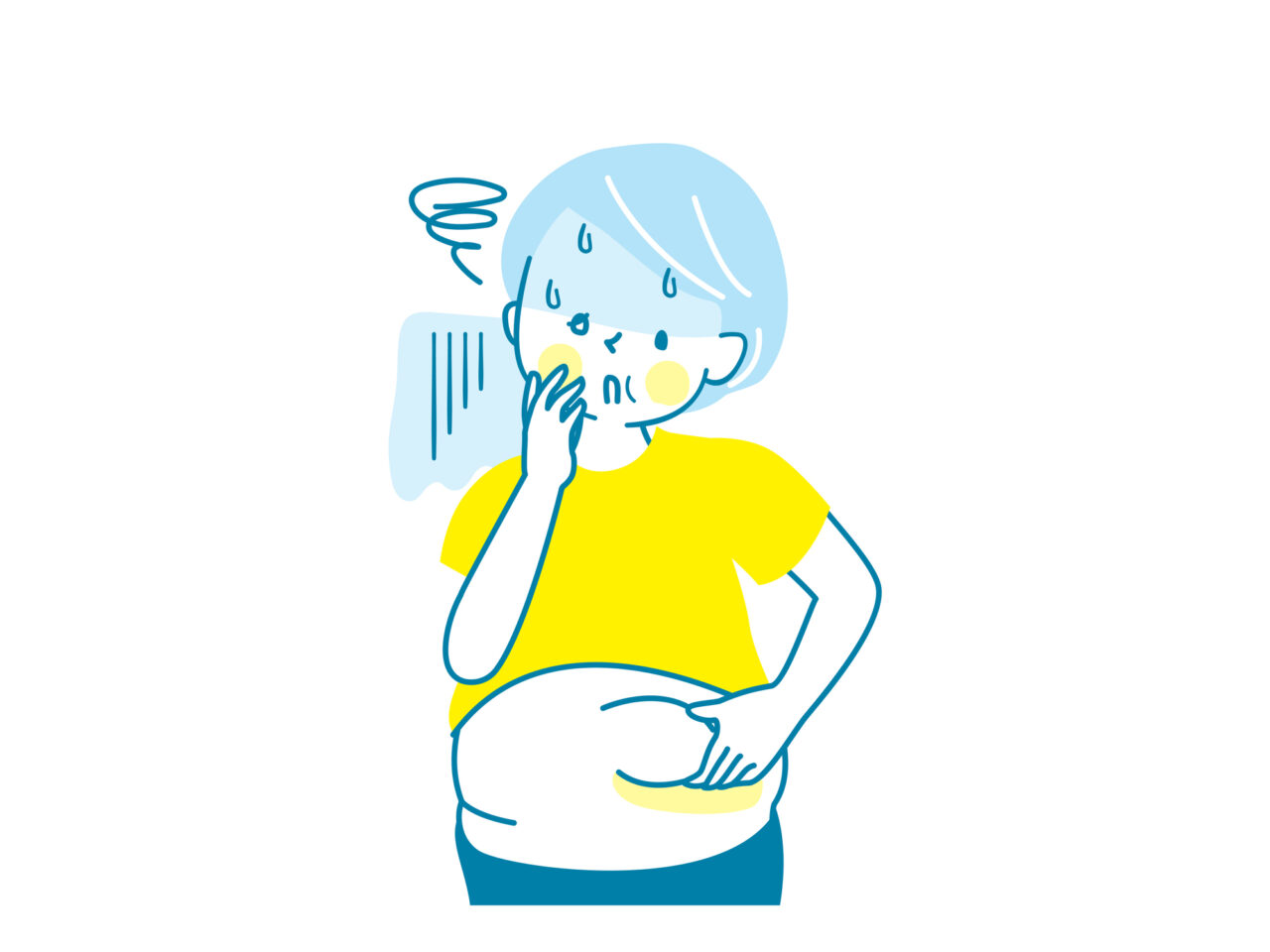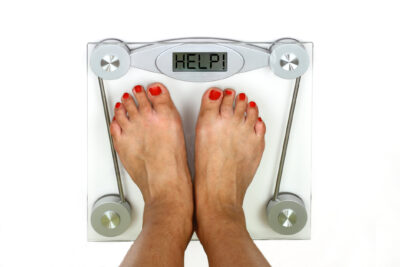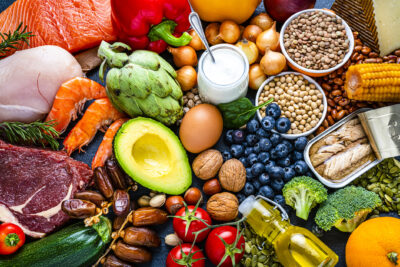Are your pants suddenly feeling a bit snug? Does it feel like you can’t lose weight no matter how much you diet or exercise? If you are a woman in her 40s or older, you are very likely experiencing weight issues due to menopause. Now is not the time to curl up in a ball, crying into a bowl of Cheese Doodles. Now is the time for action! You don’t have to take menopausal weight gain lying down (or curled up)!
Menopause has an adverse effect on weight for women. Hormonal changes often cause weight gain. Loss of muscle mass as you age also contributes to weight gain. Genetic factors can play a role in menopausal weight gain. And lastly, becoming less active during menopause has a negative effect on your weight.
Menopause is inevitable. Does the typical menopausal weight gain have to be inevitable too? Not necessarily. While it may be harder to maintain or lose weight it isn’t entirely impossible. This article will look at how menopause affects weight, but it will also look at ways you can fight the weight gain.
Hormonal Changes
Estrogen levels significantly drop during menopause. According to Breastcancer.org, “Estradiol is the main form of estrogen found in premenopausal women. A normal level is 30-400 picograms per milliliter (pg/mL), but after menopause, it falls below 30 pg/mL.” The decrease in estrogen can lead to weight gain as it ultimately affects metabolism. It is a very cause-and-effect relationship. Decreased estrogen can cause a decrease in muscle mass which then affects metabolism. A slower metabolism is almost a sure way to gain weight. The other effect of decreased estrogen is that your body may start storing fat predominantly in your belly (hello, unwanted muffin top). This doesn’t necessarily mean weight gain. It just means your body is redistributing fat to your belly, causing it to look like you have gained weight. While this may not make you feel any better about your new muffin top, at least you have a better understanding of the reason behind it. You may be doing everything right. Your body is simply going through natural changes.
Loss of Muscle Mass
As mentioned above, you may lose muscle mass from the decrease in estrogen which then affects your metabolism. Metabolism is the process our bodies use to convert food to energy. With a lower metabolism, you burn fewer calories making weight gain much easier. Muscle burns fat, so the loss of muscle mass leads to your body burning less fat. The muscle mass/metabolism connection is a key component of menopausal weight gain.
Genetic Factors
Genes can be a blessing and a curse. You probably already knew that by now. As Heather said in “Romy and Michelle’s High School Reunion,” “This dress exacerbates the genetic betrayal that is my legacy.” Menopause may make you feel that way more often than not, but you don’t have to be resigned to feeling that way! While your weight gain and where on your body you gain weight during menopause can be affected by your genes, it doesn’t mean you have to throw your hands up in despair. We are still going to discuss how to combat menopausal weight gain.
Becoming Less Active
People often become less active as they age. This is due to a variety of factors. Sometimes injuries that you have sustained over the years cause painful arthritis. Some people enjoy relaxing more if they have retired. Others enjoy the freedom of not running kids all over anymore and choose to chill. Whatever the reason, a sedentary (non-active) lifestyle is no good for your weight! If you want any hope of combating menopausal weight gain, you must stay active! You don’t have to run a marathon, but regular exercise should be a part of your routine.
How Can You Fight the Fat?
Weight gain or at least the redistribution of fat will likely become an issue during menopause. Because of your lower metabolism, you will need to be more conscious about what you eat and how much of it you eat. You don’t need to go on a “diet.” Eating healthy foods in healthy portions is the key to a healthy weight. Sugar is not your friend, especially during menopause. As mentioned above, you MUST move! Sitting around all day, every day is not an option!
Another way to fight the fat is with red light therapy. Red light therapy is natural, painless, and has no side effects. The red light causes the membranes of fat cells to experience a disruption. This allows fat to escape. The fat is then permanently excreted. Many people find the treatment to be relaxing. It can be used to target problem areas, like the belly! This can be useful in fighting that muffin top!
Summary
Menopause is inevitable, and in many ways, the weight gain or redistribution of fat is also inevitable, but it doesn’t have to be permanent. Decreased estrogen, decreased muscle mass, lower metabolism, genetics, and less activity all contribute to menopausal weight gain. But, healthy eating, exercise, and red light therapy are great, effective ways to combat the menopause muffin top!
If you are interested in experiencing the relaxing and fat-busting effects of red light therapy, then give us a call at Colorado UltraSlim, located in Fort Collins, CO. We believe you will enjoy the experience and be pleased with the immediate results!



